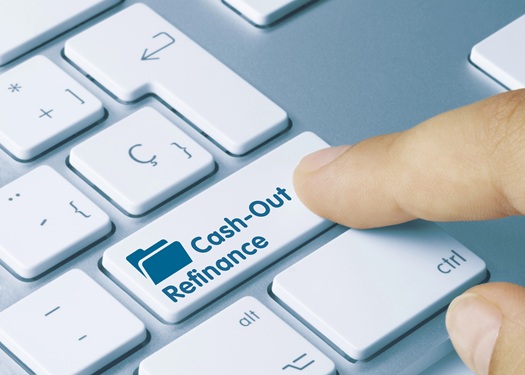
For property investors looking to unlock capital and improve liquidity, a commercial cash-out refinance remains one of the most flexible financing tools available. Whether your aim is to renovate, expand, consolidate debt, or strengthen credit standing, refinancing with equity opens up new possibilities for growth without selling assets.
This blog is the final part in our series on commercial real estate equity strategies. If you missed the earlier posts, you can revisit Commercial Cash-Out Refinance: What It Is and How It Works – Part I to understand the basics, and explore Commercial Cash-Out Refinance: How to Maximize Equity for Business Growth – Part II to see how refinancing can fund strategic improvements.
Below, you’ll find a detailed look at credit improvement, value appreciation, loan eligibility, and what to expect during the refinancing process.
How a Commercial Cash-Out Refinance Can Improve Your Credit Score
Tapping into the equity of a commercial property can do more than provide working capital. Many investors use the cash released from refinancing to pay off high-interest debts. This immediately lowers credit utilization, which is one of the key factors in determining credit scores.
When existing balances are reduced, and debt-to-income ratios improve, lenders view the borrower more favorably. This opens the door to better loan terms in the future and increases negotiating power. In competitive markets, having a stronger credit profile allows borrowers to act quickly and secure advantageous deals when they arise.
Using Equity from a Commercial Cash-Out Refinance to Raise Property Value
One of the most compelling reasons to pursue a commercial cash-out refinance in Boston MA is to reinvest in the property itself. Renovating outdated areas, upgrading HVAC systems, or enhancing energy efficiency through solar integration can raise both the rental value and long-term resale price.
A well-planned improvement strategy not only appeals to tenants but also drives higher occupancy rates. This in turn raises the net operating income (NOI), a core metric that directly affects property valuation. In effect, refinancing enables the building to fund its own growth without external capital injections.
How Refinancing with Equity Supports Cash Flow Goals
Many owners consider refinancing when their current mortgage terms limit flexibility. By securing new financing with lower monthly payments or longer repayment periods, a commercial cash-out refinance can significantly improve cash flow.
This liquidity can be used to pay investors early, fund expansion projects, or avoid balloon payments on variable-rate loans. In markets like Boston where property values have surged, owners with strong equity positions often choose to refinance to redistribute capital and avoid having idle assets locked into the building.
Strategic refinancing also makes it easier to allocate funds toward tax-advantaged areas such as depreciation or cost segregation, providing longer-term savings.
What You Need to Qualify for a Commercial Cash-Out Refinance

commercial cash-out refinance in Boston MA
Eligibility for this type of refinance depends on several standard criteria. Lenders typically look for:
- Full ownership of the property by the borrower
- Professional property management, especially for multifamily or commercial units
- No existing liens that could complicate the refinance
- Property located in an approved underwriting region
- Debt service coverage ratio (DSCR) between 1.2 and 1.5
- Loan-to-value (LTV) ratio under 80%
- At least 30% to 40% equity remaining after the cash-out
In many commercial markets, including Boston, lenders also prefer borrowers with strong financial reserves and a clean credit history. Borrowers typically retain 20–25% equity post-refinance, even after releasing funds.
Understanding Costs and Terms
While refinancing unlocks capital, it’s essential to account for fees and closing costs to avoid surprises. Common costs include:
- Lender origination fees (1–3%)
- Closing costs (2–5%)
- Potential prepayment penalties on existing loans
- Legal and title service charges
- Appraisal and inspection costs
Most refinancing terms run between 15 to 30 years, providing stability through fixed or variable interest options. The average processing time ranges from 30 to 45 days, though delays can occur if documentation isn’t prepared thoroughly or if issues arise during underwriting.
Always budget extra time and capital to accommodate potential bottlenecks.
Why Expert Help Matters for Success
Navigating a commercial cash-out refinance without guidance can lead to missed opportunities or poor structuring. Professionals can assist with comparing lenders, calculating tax implications, optimizing the DSCR, and timing the market for rate changes.
FinanceBoston, Inc. helps ensure your commercial cash-out refinance meets both performance and aesthetic standards.
By understanding when and how to refinance, property owners can reduce risk, increase available capital, and accelerate long-term financial goals. Whether your aim is expansion, renovation, or simply unlocking liquidity, refinancing with equity puts control back in your hands.
Call FinanceBoston, Inc. now to speak with a commercial lending specialist who can walk you through eligibility, rates, and strategies. The right refinance could be the key to unlocking your property’s full potential.
FinanceBoston, Inc.
33 Broad Street
Boston, MA 02109
617-861-2041
https://financeboston.com/


No comments:
Post a Comment